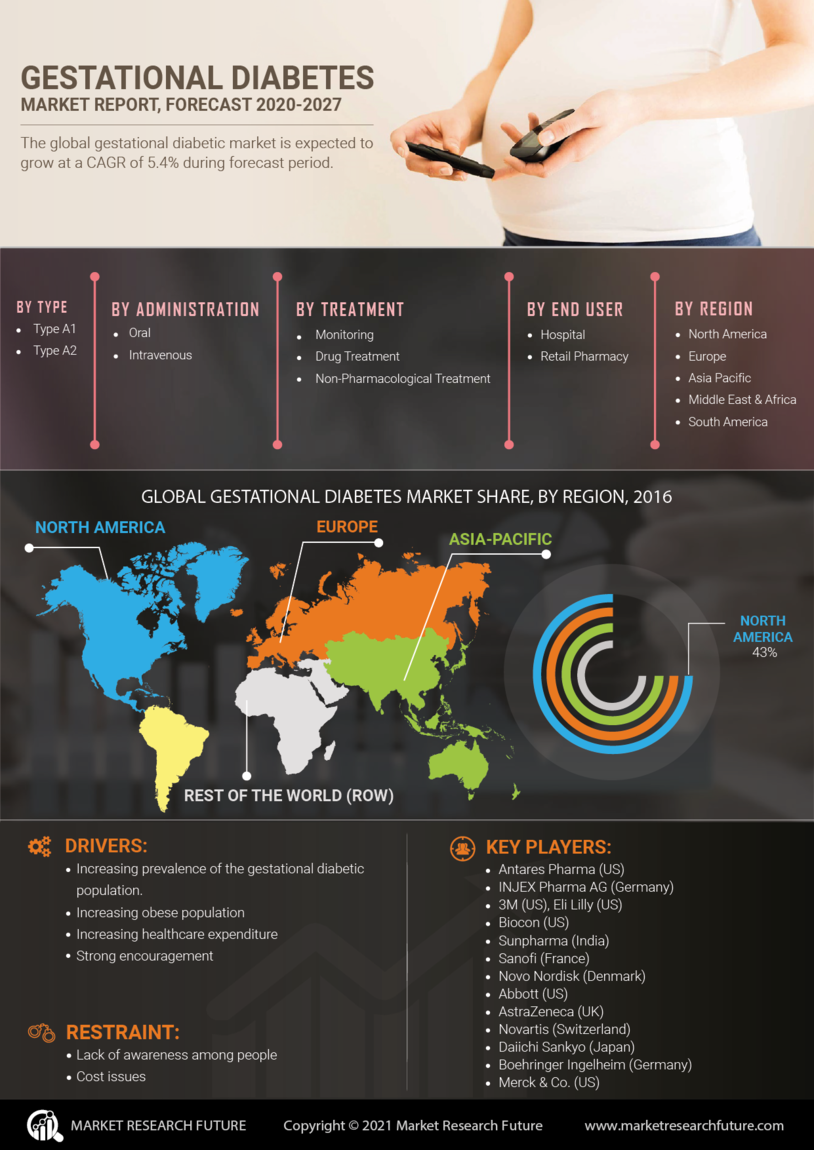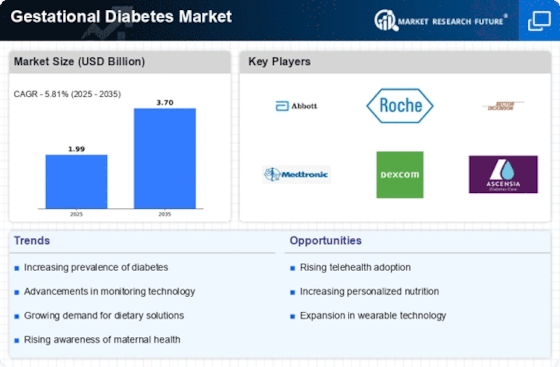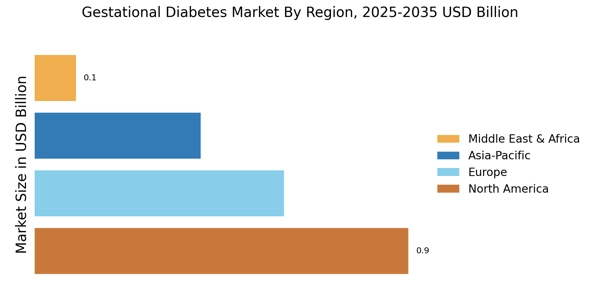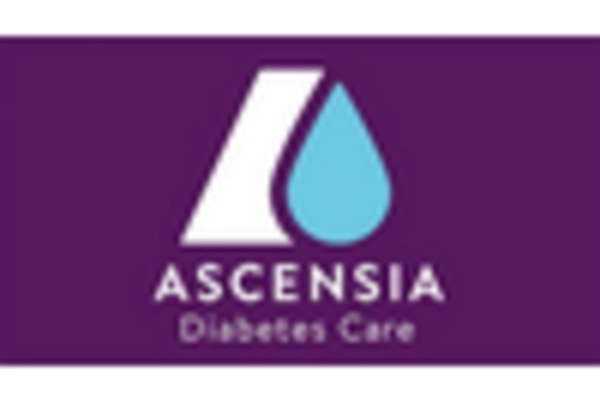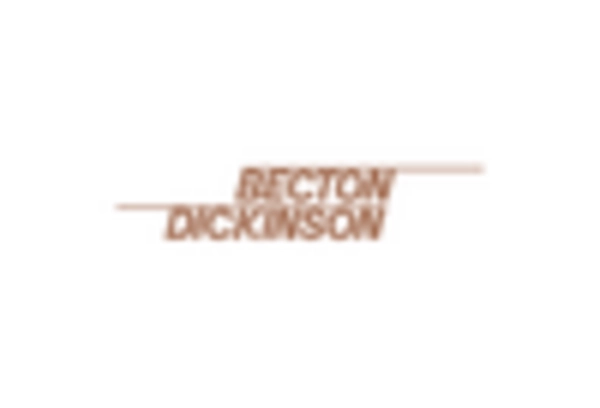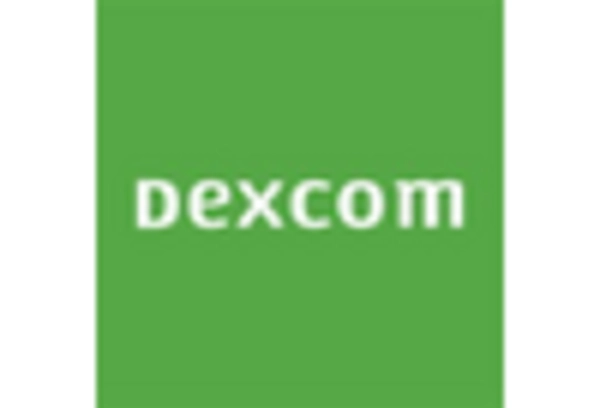Advancements in Medical Technology
Technological innovations play a crucial role in shaping the Gestational Diabetes Market. The development of advanced monitoring devices, such as continuous glucose monitors and mobile health applications, has transformed the way gestational diabetes is managed. These technologies enable real-time tracking of blood glucose levels, allowing for timely interventions and personalized care plans. Furthermore, the integration of artificial intelligence in data analysis enhances the accuracy of risk assessments and treatment recommendations. As these technologies become more accessible and affordable, they are expected to drive market growth by improving patient outcomes and increasing adherence to treatment protocols. The ongoing evolution of medical technology thus presents a promising avenue for expansion within the gestational diabetes sector.
Increase in Healthcare Expenditure
The rise in healthcare expenditure is a significant factor influencing the Gestational Diabetes Market. As countries allocate more resources to maternal health, there is a corresponding increase in funding for gestational diabetes management programs. This trend is evident in various regions, where investments in healthcare infrastructure and services are prioritized. Enhanced funding allows for improved access to screening, treatment options, and educational initiatives, which are essential for managing gestational diabetes effectively. Furthermore, as healthcare systems evolve to accommodate the needs of pregnant women, the demand for gestational diabetes products and services is likely to grow. This increase in expenditure reflects a broader commitment to improving maternal health outcomes and addressing the challenges posed by gestational diabetes.
Policy Changes and Healthcare Reforms
Recent policy changes and healthcare reforms are shaping the landscape of the Gestational Diabetes Market. Governments and health organizations are increasingly recognizing the importance of maternal health, leading to enhanced coverage for gestational diabetes screening and management. These reforms often include provisions for subsidized access to necessary medications, monitoring devices, and educational resources. As a result, more women are likely to seek care and treatment for gestational diabetes, thereby expanding the market. Additionally, policies that promote preventive care and early intervention are expected to further drive demand for gestational diabetes solutions, as they emphasize the importance of managing this condition effectively to prevent long-term health complications.
Rising Incidence of Gestational Diabetes
The increasing prevalence of gestational diabetes is a primary driver of the Gestational Diabetes Market. Recent data indicates that approximately 6 to 9% of pregnant women are diagnosed with this condition, a figure that has been steadily rising. This trend is attributed to various factors, including the growing rates of obesity and sedentary lifestyles among women of childbearing age. As awareness of gestational diabetes expands, healthcare providers are more vigilant in screening and diagnosing this condition, leading to a heightened demand for management solutions. Consequently, the market for gestational diabetes products and services is likely to experience significant growth, as both healthcare professionals and patients seek effective interventions to manage this increasingly common condition.
Growing Awareness and Education Initiatives
The rising awareness surrounding gestational diabetes is significantly influencing the Gestational Diabetes Market. Educational campaigns aimed at both healthcare providers and expectant mothers are crucial in promoting understanding of the condition and its potential complications. Initiatives by health organizations and non-profits have led to increased screening and early diagnosis, which are essential for effective management. As more women become informed about the risks associated with gestational diabetes, there is a corresponding increase in demand for educational resources and management tools. This heightened awareness not only fosters proactive health measures but also drives the market for gestational diabetes products, as patients seek reliable solutions to manage their health during pregnancy.
